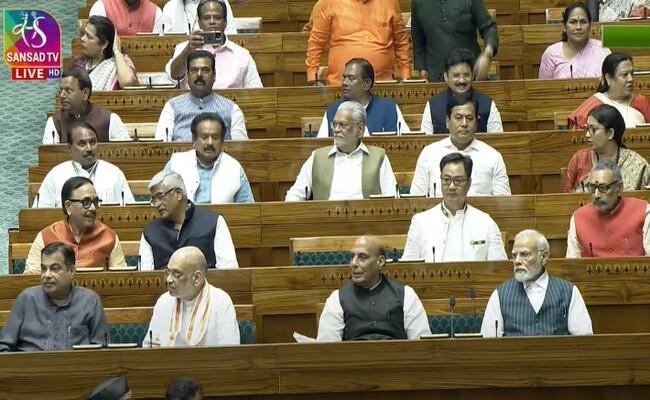Women’s Reservation Bill Tabled in Lok Sabha: 10 Points

New Delhi: As the Union government tabled The Constitution (One Hundred and Twenty-Eighth Amendment) Bill, 2023 (Women’s Reservation Bill) named Nari Shakti Vandan Adhiniyam in the Lok Sabha during the ongoing special session of Parliament in New Delhi on Tuesday. We’ll take a look at its history, significance, and the need for reservation among other reasons below.
- Women’s Reservation Bill seeks to reserve one-third (33 percent) of all seats for women in the Lok Sabha and State legislative assemblies. The Constitution 108th Amendment Bill, 2008 states that the reservation of seats for women shall cease to exist 15 years after the commencement of amendment act.
- Former Prime Minister Rajiv Gandhi first introduced the Constitution Amendment Bill in 1989 to provide one-third reservation for women in rural and urban local bodies. The Bill was passed in Lok Sabha but failed to get cleared in Rajya Sabha.
- Later, the then prime minister PV Narasimha Rao reintroduced the Constitution Amendment Bills 72 and 73 in 1992 and 1993. The Bills were passed by both the houses and it became the law of the nation,
- On September 12, 1996, Deve Gowda-led United Front government for the first time introduced the 81st Constitution Amendment Bill in Lok Sabha for reservation of women in the Parliament. The bill was not passed in Lok Sabha.
- Next came the Atal Bihari Vajpayee-led NDA government which tabled the Women’s Reservation Bill in the lower house in 1998. The bill failed to get approval in Lok Sabha.
- The Vajpayee-led government reintroduced the bill in 1992, 2002 and 2003 but it found no success.
- The Manmohan Singh-led UPA government reintroduced the WRB Bill in Rajya Sabha on May 6, 2008.The Bill was passed in Rajya Sabha with 186-1 votes on March 9, 2010 following the inclusion of a few recommendations made by the 1996 Geeta Mukherjee Committee
- Currently, representation in parliament and most state legislatures across the country is below 15 per cent with 19 of state assemblies having less than 10 percent women MPs.
- Law Minister Arjun Ram Meghwal,who tabled the WRB Bill in the parliament said after the approval of this bill, women MPs in Lok Sabha to be increased to 181 from the existing 82.
- The Women’s Reservation Bill cannot be implemented before the 2024 General elections and will come into effect after the delimitation exercise is undertaken in the country.
Also Read: Andhra HC Defers Hearing on Bail Plea of Naidu to Sep 21




